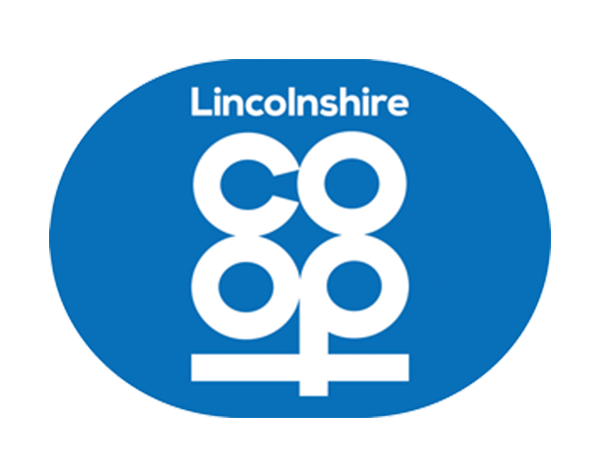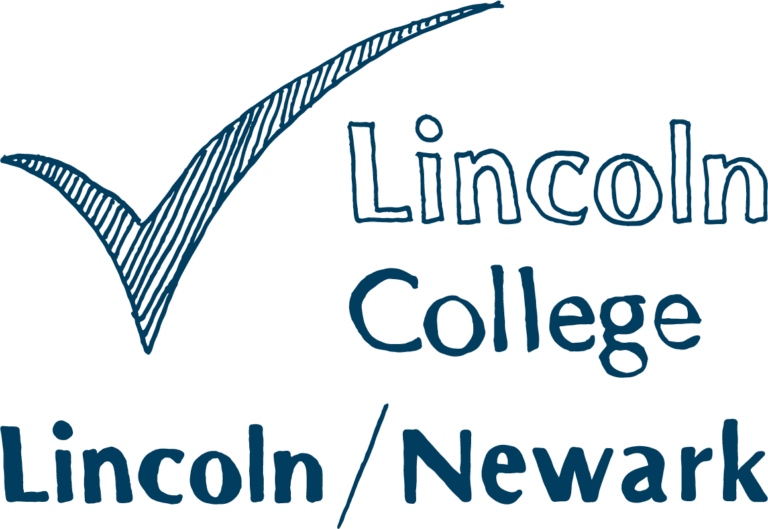Earth Day: Business in Lincolnshire Part 2
Innovative thinking for a more sustainable future post COVID-19
As your local Chamber, we are supporting Lincolnshire businesses who are taking proactive steps towards a greener future.
This two-part webinar series shines a light across a wide variety of sectors, from housing to transport, food, manufacturing and much more.
This digital event has been pulled together for Earth day and will be chaired by Steff Wright as part of the launch of the Gusto Homes Community interest company.
The challenges we have ahead of us over the coming weeks, months and years are going to take some real innovative thinking from us all in order to adapt to the challenges from COVID-19 and the challenges of climate change.
This period of lockdown has not only shown the bravery of those at the front line but it has also been an opportunity for us to slow down and appreciate qualities of life and nature that are often overlooked when we are too busy leading fast lives.
Getting involved is easy!
Simply register to attend the webinar here and tune in on Friday 24th April.
If you are interested in all topics, please feel free to stay with us all day from 10:30am until 4:30pm, or if you are only interested in certain sectors and topics, you can dip in and out of the stream.
We strongly encourage businesses and individuals to ask questions on these topics during the webinar so our experts can offer their support directly to you.
See below for the full agenda and panel members.
Register for the webinarAgenda of the day:
11:00 am Topic: Energy
Panel members: Richard Jones, EV Camel and Chamber Assembly Lead for a Low Carbon Future
Whilst a lot of technology is becoming more energy efficient we continue to see an overall increase in global energy use and there continues to be massive investment in opening up new reserves of fossil energy, damaging to the local environment and adding to global carbon dioxide emissions.
– The drop in demand for fuel during the lockdown period has resulted in lower fuel costs. If that demand could be permanently reduced to a level where it could be fully met through renewable energy sources, would this mean an end to the need for fossil fuel?
11:30 am Topic: Transport
Panel members: Andy Gutherson of Lincolnshire County County Council and Emil Wowk of Chartered Institute of Logistics and Transportation
During the lock down period most cars have been parked up on people’s driveways and our airports have turned into giant parking lots for fleets of aeroplanes. We have learnt new ways to communicate with each other and have celebrated events at home digitally connecting to friends and family in place of driving or flying off for a weekend abroad.
However, whilst we are in lockdown, we have continued to shop on Amazon requiring imported goods to continue to be shipped into the UK and distributed by the fleets of lorries and small vans which get them to our door.
– Would our quality of life be improved if we reduced the amount of miles, we travelled each year and if we stopped taking short overseas breaks?
– Would we need so many lorries on the road if the products we buy were sourced more locally?
– And how would the car and aviation industries adapt if there is a big reduction in demand for new cars and for flights.
12:00 pm Topic: Manufacturing
Panel members: Jaidip Sen of Napier Turbocharges, Garry Wilkinson of Commercial Banking (Natwest) and Dave Roberts from Rototek
A large proportion of our manufacturing sector has moved overseas which has generally made stuff cheaper for us all. However, when the borders started closing during the lockdown this supply chain started to break down. People have also been frustrated by our inability to switch on local manufacturing capabilities for ventilators and personal protective equipment as fast as was needed.
With the right investment in more efficient manufacturing the UK can now compete with China in the manufacture of many of the products we used to make at home and are now outsourced.
– Is this the right time to bring our manufacturing back to the UK, to invest in clean and safe manufacturing processes and help rebuild our economy through buying British?
12:30 pm Topic: Banking, finance and pensions
Panel members: Ian Green of HSBC, Richard Hallsworth of Nicholsons and Garry Wilkinson, Commercial Banking (Natwest)
The stock market has crashed and the number of companies going bust is growing by the day. During the financial crash of 2007 our government bailed the banks out with public funds to prevent an even greater financial collapse. With our banks in better shape than they were in 2007, what role should the banks play in helping the rest of the economy get back up off its knees and working again.
– Should Banks be ruthless in only backing companies they believe will be successful in a post COVID-19 world and should that also include only backing companies that demonstrate a real commitment to contributing to a low carbon future?
1:00 pm Lunch break
1:30 pm Topic: Food
Panel members: Charlotte Hay of Healing Manor, Penney Poyzer of Nottingham Good Food Partnership, Andrew Buckley of Lockwood Estates and Hayley Toyne from Taste Lincolnshire
The panic at the supermarkets and the need for many people to self-isolate has resulted in an increase in home deliveries; mainly from our supermarkets but also from specialist suppliers of veg boxes.
There has also been a big increase in the purchasing of flour for baking bread a reduction in the consumption of unhealthy snacks and chocolate as we are not making those impulse purchases now.
– Will this change in our lifestyle also change the type of food we eat?
– With the doors currently closed at McDonald’s and people eating healthy food at home is this a good time for our food industry to find ways to supply healthier food, reduce the amount of meat and sugar in our diets and reduce the distance our food travels from farm to the table?
2:00 pm Topic: Justice
Panel members: Peter Wright of Lincolnshire Action Trust and Dr Lauren Smith of University of Lincoln
Some people are concerned that new powers granted to the police to control public order during the COVID-19 lockdown could result in an increase in the number of prisoners.
– With the cost of running our prisons escalating and new prisons being built to lock up individuals with mental health issues and for minor drug offenders, is this the time to rethink how we reduce the numbers in our prisons?
2:30 pm Topic: Health and social care
Panel members: John Webber of Bluebird Care, Sean Barkes of Refinity Coaching and Kerry Bareham, St Barnabas Hospice and Peter Wright of Lincolnshire Action Trust
The importance of the NHS and the health and social care sector has been brought to everyone’s attention including the attention of our Prime Minister Boris Johnson. When we have time to step back from the chaotic rush of everyday life, the most important thing is our health and wellbeing.
– How do we improve the efficiency of our social care system so that our taxes can be used to attract and properly reward the carers whose personal support is so valuable?
3:00 pm Topic: Education
Panel members: Gary Headland of Lincoln College, Chair of the Lincolnshire Chamber of Commerce and Leona Jasmin Dawling of Global Grad
Over the past few years many employers have been challenging the education system to ensure students are well prepared for a rapidly changing workplace. Artificial intelligence and mechanisation are rapidly altering the types of jobs people will do in the future. Many of the jobs current students will do have not even been created yet.
– With School, Colleges and Universities all closed and quickly working out how they can continue to support their students remotely, is this the time for our education system to make fundamental changes to the type of teaching it delivers and the way it delivers it?
3:30 pm Topic: Retail
Panel members: Sarah Loftus of Lincoln BIG and Peter Watson of Distract
The high street has been one of the worst hit sectors during this period of lockdown. Whether it is fast food or fast fashion, many companies have been forced into administration and others will be wondering how quickly shoppers will return having got so used to ordering on their Amazon accounts.
– When the lockdown lifts people will hopefully be keen to visit their high streets but will their buying habits have changed and what will we all want from our high street if we have become even more reliant on the online deliveries?
– Fast fashion sales have plummeted during lockdown as people get more comfortable wearing the same clothes and perhaps even have time to mend and repair rather than throw away and replace. Will this lead to a more sustainable type of fashion and a lowering of the environmental impact fast fashion has on the planet?
4:00 pm Topic: Digital media, culture and sport
Panel members: Paul Reames of Bluecube, Nicola Ellwood of Ellwood Performance and Mastery Charlotte Goy of Visit Lincoln, Peter Watson of Distract and Sukhy Johal MBE, Director of the Centre for Culture & Creativity, University of Lincoln
The theatres, cinemas, football stadiums, showgrounds and music events were among the first to close, and because of the challenges with physical distancing, they will probably be the last to open. During lockdown there has been a big increase in sign ups for Netflix and other home entertainment platforms. Alongside which people have had more time to read books, exercise at home and be creative through learning new skills.
– It is thought many people will be keen to get a better work life balance having enjoyed some elements of this enforced lockdown. How will the creative industries manage to use the benefits of digital technology to add value to the experience they offer to us?
4:30 pm Wrap up session, beer and continue the conversation on Twitter.
Event Details
Ticket Bookings
We use a third party booking service for our event. To view available spaces and purchase your tickets, please click the button below.
Book Now












